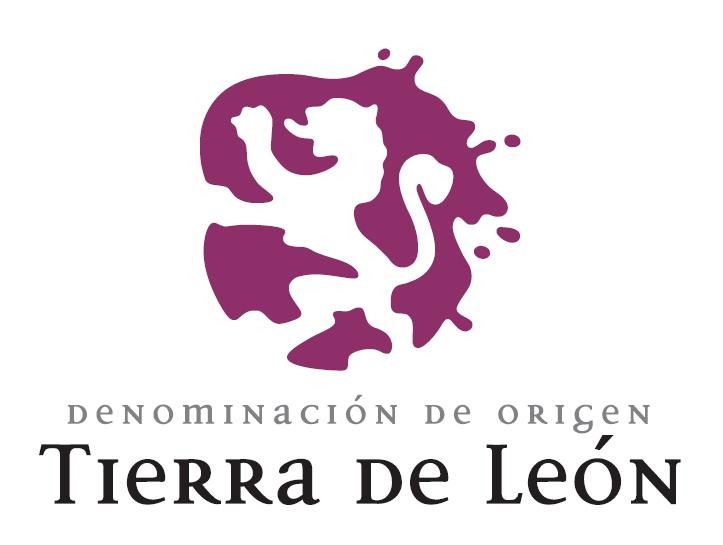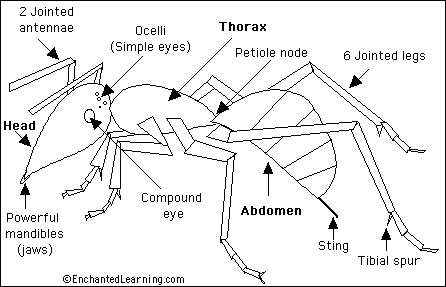ARIZONA COURT AGAIN STRIKES DOWN A HOAS RESTRICTIONS ON
017 SOUTHWEST ALUMINUM SYSTEMS CHANDLER ARIZONA PHONE 8005444044 SPECIFICATIONS1931-05-18%20State%20of%20Arizona%20v%20State%20of%20California%20(Hoover%20Dam%20to%20International%20Border)
2013 ARIZONA SWIMMING RED PEAKS AQUATIC CLUB 2013 “BEAT
2017 Arizona Outdoor Hall of Fame Inductee Nomination Form
41—SOUTHEASTERN ARIZONA BASIN AND RANGE THIS AREA (SHOWN IN
4380 N CAMPBELL AVE 200 (T) 5208876816 TUCSON ARIZONA
Arizona Court: Homeowners Have a Right to use Solar Energy
Arizona Court Again Strikes Down a HOA's Restrictions on Private Property Rights to use Solar Energy
The
Arizona Court of Appeals recently issued a published opinion in a
case that will lead to greater use of solar energy in Arizona. In
Garden Lakes Community Association v. Madigan/Speak, the HOA was
seeking to force the homeowners to take down solar panels installed
on the roof. The Appeals Court found that the HOA's deed restriction
and architectural guidelines, combined with the HOA's conduct,
violated the public policy of Arizona as expressed in Arizona Revised
Statute Section 33-439.
Garden Lakes Community Association
is a master planned community located in Avondale, Arizona, with over
2,000 homes. The Madigans and Speaks, retirees living in the HOA,
installed solar swimming pool heaters on their properties for
environmental and economic reasons. Heliocol Solar, a member of the
Arizona Solar Energy Industries Association, installed the Speak
system. The homeowners wanted to use Arizona's abundant sunshine to
heat their swimming pools so they could exercise without pain in
winter months. Little did they know the solar panels would lead to
five years of litigation.
The HOA filed a lawsuit against
the two seeking an injunction requiring removal of the solar panels
and approximately $100,000 in fines. Relying on the deed restriction
and Architectural Review Guidelines, the HOA argued that the
homeowners should have built a patio or screen to hide the solar
panels. Madigans and Speaks countered that both options are
prohibitively expensive and significantly reduce the efficiency of
the systems. Madigans and Speaks won in the trial court but the HOA
continued its litigation and appealed.
The Appeals Court,
in upholding the lower courts decision in favor of the homeowners,
concluded the HOA's restriction on solar panels "effectively
prohibited the installation and use of SED's (solar energy devices)."
The Association attempted to place restrictive guidelines on the
residents that were contrary to the provisions of A.R.S.-33-439 (A).
The Arizona Legislature passed ARS-33-439 in 1979 in order to protect
individual homeowner's private property rights to use solar energy.
The opinion can be reviewed at
http://www.cofad1.state.az.us/opinionfiles/cvidx.htm.
Many
HOAs place restrictions on the installation of solar devices that add
significantly to their cost or prevent them from receiving sunlight,
which would render them useless. This practice is a significant
barrier to widespread use of solar energy by Arizona
homeowners.
"Hopefully, this ruling will end the
senseless attempts by homeowners associations to prevent Arizonans
from using solar energy," said Kent Pulido, President of the
Arizona Solar Energy Industries Association (AriSEIA). "With
incentives such as the Arizona residential tax credit, the new
utility rebate programs and the pending federal tax credit, Arizonans
can now take advantage of the sun to reduce their monthly utility
bills and allow our state to take advantage of the economic
development and air quality benefits that solar can
provide."
According to information provided by
Arizona utilities, in the Phoenix area, the installation of a solar
domestic water heating system will annually displace 2600 pounds of
pollutants, when replacing an electric water heater and 1200 pounds,
when replacing a natural gas water heater. Swimming pool heating
systems can prevent the emissions of 10,000 pounds of carbon dioxide
and other pollutants annually when replacing natural gas for pool
heating. Money saved by Arizona consumers remains in the local
economy benefiting Arizona cities and towns.
Madigans and
Speaks were represented by attorney Hyung S. Choi of CHOI & RHEE,
PLLC, a law firm in Tempe, Arizona. Attorney Choi's practice is
focused on consumer protection litigation and in this case agreed to
represent Madigans and Speaks because of the overreaching lawsuit
filed by the HOA.
The Arizona Solar Energy Industries
Association has been conducting an outreach program to homeowners
associations promoting standards for the aesthetic installation of
solar energy devices. The program, funded by the U.S. Department of
Energy through a grant to the Arizona Department of Commerce, Energy
Office has resulted in presentations to many homeowner associations
and management companies throughout the state. The goal of the
program is to demonstrate the increased property values of energy
savings and the benefits of solar energy the state of Arizona.
The full ruling is available in PDF format on the Arizona Court of
Appeals Division One Web site at:
http://www.cofad1.state.az.us/opinionfiles/CV/cv000570.pdf
AAA1184A FORFF (914) ARIZONA DEPARTMENT OF ECONOMIC SECURITY DIVISION
AG030AFF (709) ARIZONA DEPARTMENT OF ECONOMIC SECURITY AGING AND
ALICE BOYLE ALBOYLEEMAILARIZONAEDU 1415 E PRINCE RD TUCSON AZ
Tags: again strikes, court, again, strikes, arizona, restrictions
- PLAN DE FORMACIÓN PARA EL DOCTORADO EN CIENCIAS SOCIALES
- PRÍLOHA Č 43 UPRESNENIE VYMEDZENIA POĽNOHOSPODÁRSKYCH VÝROBNÝCH OBLASTÍ (PVO)
- ИМЕ И ПРЕЗИМЕ АНА ТОМАНОВА МАКАНОВА ИМЕ ОРГАНИЗАЦИЈЕ И
- 2021 DR MARTIN LUTHER KING JR DREAM
- NA TEMELJU ČLANKA 125 I 126 ZAKONA O RADU
- SATZUNG DER STUDENTISCHEN UNTERNEHMENSBERATUNG GEISLINGEN STUDENTISCHE UNTERNEHMENSBERATUNG DER HOCHSCHULE
- MECHANICAL ENGINEERING EMERGENCY CONTACTS JHE999 EXT 99999 SAFETY EQUIPMENT
- WSPÓŁFINANSOWANY W RAMACH PROGRAMU UNII EUROPEJSKIEJ ERASMUS+ HARMONOGRAM KURSU
- DEFINICJE MIKROPROCESOR (ΜP) JEST TO UKŁAD SCALONY O
- 291 ERASMUS MUNDUS MAMASELF SCHOLARSHIPS ( HTTPCAMBODIAJOBSBLOGSPOTCOM201009ERASMUSMUNDUSMAMASELFSCHOLARSHIPSHTML )
- ZAŁĄCZNIK NR 8 DO UMOWY DEFINICJE WSKAŹNIKÓW OBOWIĄZUJĄCE W
- LIETUVIŲ KALBOS INSTITUTAS SKELBIA KONKURSĄ EITI RAŠTIJOS PAVELDO TYRIMŲ
- ACTIVIDADES UNIDAD 10 ACTIVIDADES DE AMPLIACIÓN 1 DIBUJA
- Arge bsp 10 11 2010 Strasser Begrüßung
- TERMOS DE USO E POLÍTICA DE PRIVACIDADE | GRUPO
- CURSO ESCOLAR 2015 2016 LISTA DE LIBROS 3º
- REVISTA POLÍTICA Y SOCIEDAD NO 51 MODELO 1 ESCRIBA
- DRAFT TEMPLATE POLICY & PROCEDURE [NOTE THIS TEMPLATE HAS
- DERS BİLGİ FORMU DERSİN ADI DOĞRU AKIM DEVRELERİ BÖLÜM
- ENGLISH 8 NAME MRS HAWTHORNE TWELVE ANGRY MEN
- HOW TO OVERCOME THE TOP TEN NEGOTIATING TACTICS BY
- CHARANAM SHARANAM RAMAMBIKE CHARANAM SHARANAM TRAYAMBAKE (WEEKLY BULLETIN) BULLETIN
- 4 JULY 30 2009 MORTGAGEE LETTER 200923 TO ALL
- IGRA »ZAPELJATI SE Z BUSOM LPP JE COOL” PRAVILA
- BLUETOOTH CAR CHARGER BC71 MANUAL THANK YOU FOR CHOOSING
- EAST GRAND FORKS BLUE LINE CLUB GENERAL MEETING JANUARY
- DISCRETIONARY TRUSTS SUMMARY 2 DISCRETIONARY POWERS A DISCRETIONARY
- e Astern Suburbs Hockey Club Managers Position Description
- LEHRVERTRAG (I S ART 44 GVD NR 812015 UND
- ZAŁ PŁYNY INFUZYJNE 17 WSMDZP3817523N2017 ZAŁĄCZNIK NR 1 DO
 23 PROGRAM EDUKACJI KULTURALNEJ PROGRAM EDUKACJI KULTURALNEJ W RAMACH
23 PROGRAM EDUKACJI KULTURALNEJ PROGRAM EDUKACJI KULTURALNEJ W RAMACH PLIEGO DE PRESCRIPCIONES TÉCNICAS PARA LA CONTRATACIÓN MEDIANTE PROCEDIMIENTO
PLIEGO DE PRESCRIPCIONES TÉCNICAS PARA LA CONTRATACIÓN MEDIANTE PROCEDIMIENTORAMIRO QUIRARTE INTERVIEW I’M HERE WITH RAMIRO QUIRARTE THIS
 ОБОРУДОВАНИЕ EVENTSEQUIPMENTRU +79264218060 +79031537426 EVENTSEQUIPMENTYANDEXRU ЛИСТ ЗАКАЗА ЗВУКОВОГО ОБОРУДОВАНИЯ
ОБОРУДОВАНИЕ EVENTSEQUIPMENTRU +79264218060 +79031537426 EVENTSEQUIPMENTYANDEXRU ЛИСТ ЗАКАЗА ЗВУКОВОГО ОБОРУДОВАНИЯ SOLICITUD DE INSCRIPCIÓNMODIFICACIÓN DE PARCELAS VITÍCOLAS ÓRGANO DE CONTROL
SOLICITUD DE INSCRIPCIÓNMODIFICACIÓN DE PARCELAS VITÍCOLAS ÓRGANO DE CONTROLPARTE I INFORMAZIONI SULLA PROCEDURA DI APPALTO E SULLAMMINISTRAZIONE
 ZAŁĄCZNIK NR 2 DO REGULAMINU PROGRAMU PN „KATOWICKA KARTA
ZAŁĄCZNIK NR 2 DO REGULAMINU PROGRAMU PN „KATOWICKA KARTA CORBA EXAMPLE DESCRIPTION OF THE EXAMPLE THIS EXAMPLE ILLUSTRATES
CORBA EXAMPLE DESCRIPTION OF THE EXAMPLE THIS EXAMPLE ILLUSTRATES OPTIMITZACIÓ DE L’ESPAI APROFITAMENT MÀXIM D’ESPAIS MÍNIMS TREBALL DE
OPTIMITZACIÓ DE L’ESPAI APROFITAMENT MÀXIM D’ESPAIS MÍNIMS TREBALL DE PROGRAMA “XARXA LLIBRES DE TEST” CONCEJALÍA DE EDUCACIÓN LA
PROGRAMA “XARXA LLIBRES DE TEST” CONCEJALÍA DE EDUCACIÓN LAACTUALIZADO EN JULIO DE 2014 JOSÉ RAMÓN FERNÁNDEZ NACIÓ
CURRICULUM VITAE DATOS PERSONALES NOMBRE Y APELLIDOS DARÍO E
TOWN OF PALMER STORMWATER MANAGEMENT ORDINANCE LARGE DEVELOPMENT PROJECTS
TRANSPORT AF EU ELLER NATIONALT STØTTEBELØB ANSØGER OM EUSTØTTEBELØB
XI BERRIA TXAPELKETA – 2014 ANTOLAKETA ZESTOA GAZTELEKU ETA
 ISLAMIC LANDSCAPES 11 ARCH1200H ISLAMIC LANDSCAPES INSTRUCTOR
ISLAMIC LANDSCAPES 11 ARCH1200H ISLAMIC LANDSCAPES INSTRUCTOR LEARNING ARC ~ PREBRAILLE READING SKILLS MSS VISION BEE
LEARNING ARC ~ PREBRAILLE READING SKILLS MSS VISION BEEA LIST OF SCHOOLS UNDER THEIR ASSIGNED QUADRANTS FOR
 6 PEDAGOGISK PSYKOLOGISK TJENESTE FOR RISØR TVEDESTRAND VEGÅRSHEI
6 PEDAGOGISK PSYKOLOGISK TJENESTE FOR RISØR TVEDESTRAND VEGÅRSHEI A L B E R T I N U
A L B E R T I N U